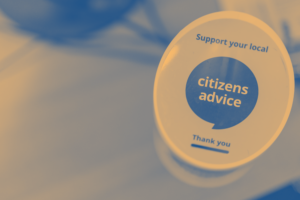This annual campaign aiming to:
· Give people skills to identify scams
· Encourage people to share their experiences
· Help people gain the confidence to report scams
Our May 2023 campaign has an additional focus of offering support around home improvement and energy efficiency scams.
Spotting a scam
Always keep an eye out for scams, as they can and do affect anyone.
Something might be a scam if:
• It seems too good to be true – like an email saying you’ve won a competition you don’t remember entering
• Someone you don’t know contacts you unexpectedly
• You’re being urged to respond or pay quickly
• You’ve been asked to pay for something urgently or in an unusual way – for example by bank transfer or gift vouchers
• You’ve been asked to give away personal information
You can check recent scams on Action Fraud’s website, and sign up for email alerts to find out about scams in your area at actionfraud.police.uk/news
How to protect yourself from scams.
If you’re not sure about something, get advice from a trusted source.
• Don’t be rushed into making any quick decisions. It’s okay to take your time
• Never give money or personal details, like passwords or bank details, to anyone you don’t know or have only met online
• Pay by debit or credit card. This gives you extra protection if things go wrong
• Be suspicious. Scammers can be very smart. They can appear like a trusted business or government official, have a professional website and say all the right things
• Keep your online accounts secure. Use a strong password for email accounts that you don’t use anywhere else
There is more information on how to protect yourself from scams on the Citizens Advice website. citizensadvice.org.uk/scamsadvice
Friends Against Scams also have advice on how to protect yourself and your loved ones from scams. friendsagainstscams.org.uk
What to do if you think you’ve been scammed
There are 3 steps you need to take:
1. Protect yourself from further risks
Don’t be embarrassed – contact your bank immediately to let them know what’s happened. You should also change any relevant log-in details, and check for viruses if you were scammed on a computer.
2. Check if you can get your money back. If you’ve lost money because of a scam, depending on the circumstances you might be able to get your money back by getting in touch directly with the method you used to pay.
3. Report the scam
Reporting scams protects others from being scammed.
• Call the Citizens Advice consumer service on 0808 223 1133
• Report the scam to Action Fraud.
They’ll also give you a crime reference number, which can be helpful if you need to tell your bank you’ve been scammed.
It’s also important to talk about your experience with family and friends. By letting them know what’s happened they can be prepared, and together we can put a stop to scams.





